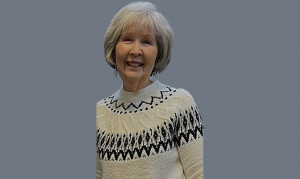When I first began in the ministry, there was a generally accepted path to success accepted by most of the other clergy I knew. The path was simple. One paid their dues by serving at smaller, poorer churches, probably in rural settings, and then, having done a good job, the reward would be accepting the position of pastor at a slightly larger church and so on.
By the time one achieved middle-age, the pastor might find himself (or herself) in a relatively comfortable position for the remainder of his/her career. Some would go on to greater successes and much larger churches, but few would drop back to the small, rural (or sometimes inner-city) settings. Mixed in with this path to success might also be stints as an associate minister at a very large church and the obtaining of an advanced degree.
The alternative, and less traveled, path was to stay in one church for a lengthy amount of time, perhaps decades, and become part of the community and enter into the lives of the members of the congregation.
It was certainly possible that the church would grow and provide upward mobility for the minister, but it was also possible that the church, and thus the salary, would remain small as well. If the church prospers, the pastor prospers (if it has an ethical governing board). If it doesn’t, then the pastor shares that burden as well.
For the first part of my ministry, I was on the first path. I started out in youth ministry, then became the pastor of a small rural church. After that came the opportunity to move to a different county with a larger rural assignment. Later, I was back to a smaller city church and then as an associate at a church adjacent to a university. Finally, I became an associate at a quite large downtown church out West.
And here is when the switch was made to the alternative path. It wasn’t a conscious thing, in the beginning. But it was a definite change in direction.
In 1983, I returned to the South to become the pastor of a then-smallish church in Georgia. Somewhere along the way, I wanted to put down roots and allow my children to experience a more stable life. I also desired to be part of the people’s lives, not just the guy who came and went. I decided to abandon the upward mobility pathway and opt to be part of the community.
I received several offers to go to bigger churches — especially since the church I served had some dramatic growth — and though tempted, I stayed with it. It was a good group of people with excellent lay leadership.
I was there for over 13 years when I left, it was not for money or status, but to plant a different kind of church with a different type of emphasis. Truthfully, if prosperity was my goal, I would have stayed where I was — and it was difficult to make the decision to leave. But I did leave and, along with my family and 11 other folks, a new church was established. Something like 80 percent of new churches fail within the first five years. In the first 10 years, that percentage rises to 90 percent.
For me, it has been well worth the financial sacrifice. In a couple of months, I will have served this congregation for 21 years. I have been in the hospital waiting room when almost all of our church children have been born and prayed the first prayer over them. Now, I am marrying some of these very same children or am watching them go off to college, the work force, or the military.
It was announced a few weeks ago that two of our young women are engaged to be married. I have known them both since they were 8 years old. There is a great deal of joy in a long pastorate.
There is also sadness. There has been a fair share of funerals of people I have known and loved during these past 21 years. There have been still-births and miscarriages, weddings and divorces. People have lost jobs and sickness has been part of the lives of more than a few.
Sometimes people move away due to job changes or promotions. Sometimes people leave for unknown reasons or reasons which I cannot fully comprehend. It has all been part of the cycle of life. Joy, sadness, laughter, tears … a season for everything.
In the early part of my ministry, I learned, sometimes the hard way, not to get too close to people. At the very least, I was going to be leaving them at some point in the near future. These last two decades, I have been a spiritual father … now, I suppose, a spiritual grandfather.
I have ceased to be an ambitious, upwardly mobile professional, and I have chosen (or perhaps have been called) to be a simple shepherd. I have had the opportunity to see people grow, develop, mature in their life and faith, and I have learned to not give up on any of them when they take a path that is not in their best interest.
Like all pastors everywhere, I want our church to grow, to have more money, to increase ministries — but, mostly, I want to be a good father and shepherd. And, for the most part, I am content to leave the ambitious things to God.
The great poet, Robert Frost, wrote:
“Two roads diverged in a wood, and I —
“I took the one less traveled by,
“And that has made all the difference.”
[David Epps is the pastor of the Cathedral of Christ the King, Sharpsburg, GA (www.ctkcec.org). He is the bishop of the Mid-South Diocese which consists of Georgia and Tennessee (www.midsouthdiocese.org) and the Associate Endorser for the Department of the Armed Forces, U. S. Military Chaplains, ICCEC. He may contacted at [email protected].]












Leave a Comment
You must be logged in to post a comment.